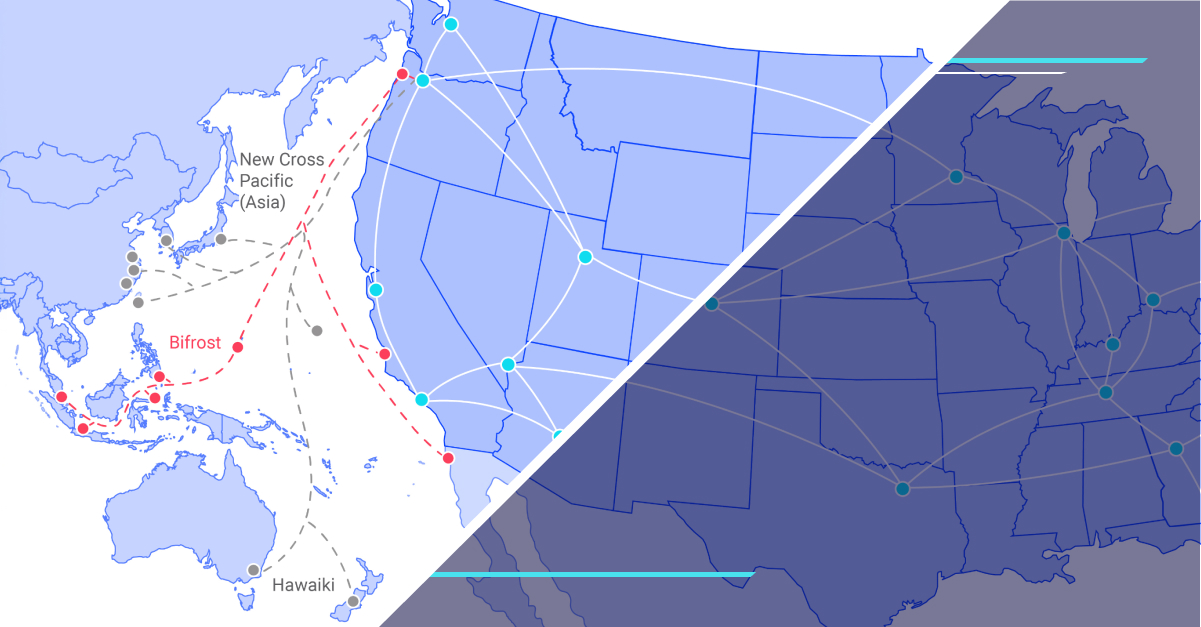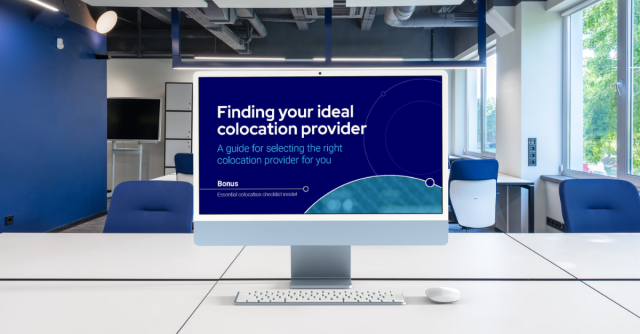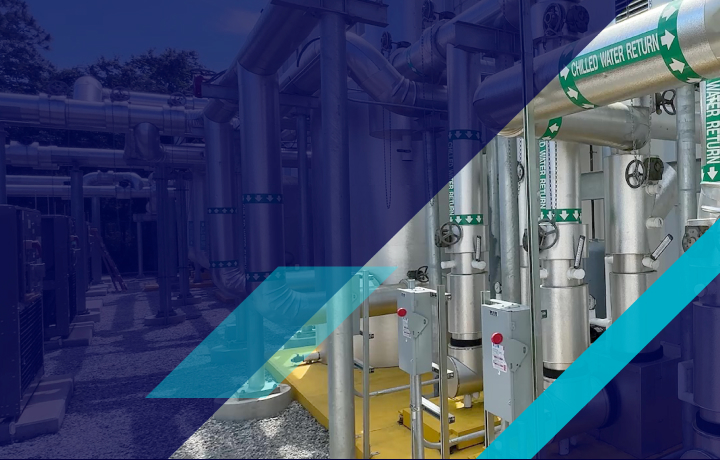Essential data center compliance standards for performance and security
Understanding and adhering to data center compliance standards are paramount in today’s intricate data center security landscape, where information is not just power but the lifeline of businesses. In this comprehensive article, we embark on a journey through the intricate world of data center compliance, exploring its nuances, importance, and the pivotal role it plays in the secure and efficient functioning of data centers.

As we learned in what is a data center, the data center houses critical infrastructure and, therefore, has a responsibility for ensuring the security, integrity, and confidentiality of the vast volumes of data traversing through it. Compliance standards are not just regulatory hoops to jump through; they form the backbone of a strategic approach to data management. When deciding how to choose a data center, evaluating the data center tier is important, as is understanding your specific compliance requirements to ensure your data center provider can meet your specific needs.
Don't know where to start? Download our guide for selecting the right colocation provider for you.
In a landscape where cyber threats loom large and data breaches can have far-reaching consequences, compliance standards serve as the compass, guiding data centers to navigate through the complex terrain of security and operational integrity. Go beyond the regulatory compliance checkboxes and read further to learn more about data center compliance standards.
Data center compliance standards are a comprehensive set of rules, regulations, and best practices designed to ensure the secure and reliable operation of data centers. At their core, these standards serve as a roadmap, guiding organizations through the intricacies of data management and data center infrastructure. They encompass a spectrum of aspects, from data security and cloud data privacy to operational transparency and risk mitigation.
Understanding these standards is akin to mastering the language of data responsibility. This includes regulations and standards like PCI DSS, HIPAA, ISO & NIST, and privacy regulations like CCPA and GDPR. Each standard contributes to the symphony of secure data management. They collectively define the best practices that elevate data centers from mere facilities to trusted custodians of invaluable digital assets.
The importance of compliance standards for data centers
The significance of compliance standards extends far beyond the binary realm of compliance or non-compliance. It’s a strategic imperative that transcends regulatory obligations. Compliance is the key to unlocking benefits that resonate across the operational spectrum of data centers.
Ensuring compliance enhances the security posture of data centers, fortifying them against the ever-evolving landscape of cyber threats. It mitigates risks, providing data protection against the potential fallout of data breaches. Compliance is not a one-time task but an ongoing commitment to transparency and accountability. It builds trust among clients, assuring them that their data is in safe hands. Moreover, compliance is a cornerstone in optimizing the efficiency and reliability of data center operations, creating a resilient infrastructure capable of weathering the storms of the digital age. Power Usage Effectiveness (PUE) serves as a metric for measuring data center energy efficiency by comparing the total energy consumption of the data center to the energy consumed by its active equipment.
Understanding the basics of data center compliance
Let's delve into its fundamental components to comprehend the multifaceted world of data center compliance and certifications. These encompass not only the specific standards but also the overarching principles that guide organizations in meeting and exceeding these benchmarks.
Important data center compliance standards
ISO 27001 Standard
ISO 27001 is a gold standard for information security management systems. Achieving this certification involves implementing comprehensive security controls, policies, and procedures. It signifies a commitment to robust data security practices, instilling confidence in clients entrusting their sensitive information to your data center.
SSAE 16 and ISAE 3402 Standards
These standards focus on controls and processes within a data center or service organization. SSAE 16 (Statement on Standards for Attestation Engagements No. 16) and ISAE 3402 (International Standard on Assurance Engagements No. 3402) provide transparency in data center operational integrity. The attestation of compliance assures clients that their data is handled securely and with the utmost integrity.
PCI DSS Compliance
PCI DSS (Payment Card Industry Data Security Standard) compliance is non-negotiable for data centers processing payment card information. This standard ensures that stringent security measures are in place to protect sensitive financial data, prevent breaches, and safeguard credit card transactions.
HIPAA Compliance
Compliance with the Health Insurance Portability and Accountability Act (HIPAA) is essential in the healthcare sector. HIPAA sets the standard for protecting sensitive patient health information. Data centers handling healthcare data must implement measures to ensure this critical information's confidentiality, integrity, and availability.
How to achieve compliance with data centers
Documentation
Thorough documentation of processes, security protocols, and risk management strategies is fundamental to compliance. Documentation serves as a reference point for audits and provides transparency into the measures in place to secure data.
Audits
Regular audits, both internal and external, are essential components of maintaining compliance. Internal audits identify potential gaps and areas for improvement, while external audits objectively evaluate adherence to established standards.
Data security measures
Implementing robust data privacy and security measures is at the core of compliance. Encryption, access controls, and secure data transmission protocols are vital components in ensuring data confidentiality and integrity.
Data center design and infrastructure
The design and infrastructure of a data center are fundamental to its overall performance and reliability. A well-thought-out data center design ensures that all critical components work harmoniously to support the needs of its users while maintaining operational efficiency.
Key elements of data center design include power and cooling systems, which are essential for maintaining optimal operating conditions for all equipment. Network and telecommunications infrastructure must be robust and scalable to handle the increasing data traffic and connectivity demands. Security and access controls are vital to protect against unauthorized access and potential breaches, ensuring that only authorized personnel can access sensitive areas.
Fire suppression and detection systems are critical for safeguarding the physical infrastructure against fire hazards, while environmental controls, such as temperature and humidity regulation, help maintain a stable data center environment. These elements collectively contribute to a reliable and efficient data center capable of supporting the ever-growing demands of modern data center operations.
Core infrastructure components
Core infrastructure components are the backbone of any data center, providing the essential systems and equipment needed to support its operations. These components include:
- Electrical systems: Power distribution units (PDUs), uninterruptible power supplies (UPS), and generators ensure a continuous and stable power supply, even during outages.
- Mechanical systems: Cooling systems, air handling units, and humidification systems maintain optimal environmental conditions, prevent overheating, and ensure the longevity of equipment.
- Networking components: Routers, switches, and firewalls form the network’s backbone, enabling secure and efficient data transmission.
- Storage systems: Disk arrays, tape libraries, and storage area networks (SANs) provide reliable and scalable data storage solutions.
- Servers and storage: Server racks, storage enclosures, and data storage devices house the critical hardware that powers data center operations.
These components work together to create a reliable and efficient data center environment, ensuring seamless operations and optimal performance.
Effects of non-compliance
Adherence to compliance standards is not a mere formality in data management; it's a safeguard against a myriad of potential perils. From legal entanglements to the erosion of trust and the far-reaching impacts on operational resilience, each is critical to maintaining and exceeding compliance standards.
Effect #1: Legal consequences
Non-compliance can result in hefty fines and legal consequences. Regulatory bodies take breaches of compliance seriously, and organizations failing to meet standards may face severe penalties.
Effect #2: Reputational damage
Reputational damage is a significant consequence of non-compliance. News of a data breach or failure to meet regulatory standards can erode customer trust and tarnish a data center's reputation.
Effect #3: Operational disruptions
Non-compliance can lead to operational disruptions, impacting the availability and functionality of data centers. This can result in financial losses and damage to the overall business operations.
Effect #4: Loss of sensitive data
The loss of sensitive data due to non-compliance can have severe consequences for both individuals and businesses. It can lead to identity theft, financial fraud, and a host of other problems for those affected.
Effect #5: Restricted opportunities
Failure to comply with industry standards may restrict business opportunities and partnerships. Many clients and partners prioritize working with data centers that meet or exceed compliance standards to ensure the security and processing integrity of their data.
How compliance affects data center management
In the world of data center management, compliance is more than a mere checkbox; it serves as the cornerstone of operational excellence. At Flexential, we understand that compliance is not just about meeting standards; it's about going above and beyond to create a secure and efficient environment for your invaluable data.
Setting the stage for streamlined operations
Compliance instills discipline and structure, ensuring that every process aligns with the highest security and reliability standards. At Flexential, our commitment to compliance goes hand in hand with our dedication to delivering seamless operations. From ISO 27001 to SSAE 16 and beyond, we integrate these standards into the fabric of our operations, creating a streamlined and resilient infrastructure.
Risk mitigation in every fiber
The Flexential approach to compliance is proactive, anticipating and mitigating risks before they can pose a threat. We recognize that data is a valuable asset, and our compliance practices are designed not just to meet industry standards but to exceed them, ensuring your data remains safeguarded in the face of emerging threats.
The Flexential commitment to excellence
Compliance isn't just a checklist of requirements; it's a commitment to best practices. At Flexential, we don't view compliance as a one-time task but an ongoing journey toward excellence. Our practices are rooted in a culture of continuous improvement, where we leverage the framework of compliance to refine and optimize our operations continually.
Future trends in data center compliance standards
Cloud computing
As data continues its migration to the cloud, new compliance standards are emerging. Ensuring compliance in cloud-based services is becoming increasingly vital as organizations leverage the benefits of cloud computing.
Emerging data center compliance standards
The data management landscape is dynamic, and compliance standards are evolving. Monitoring emerging standards is crucial for data centers looking to stay ahead in an ever-changing regulatory environment.
Implement a regulatory compliance policy
Whether you need to implement a new compliance policy, overhaul your current policies and procedures, or get expert help with compliance gap remediation, Flexential can take the workload off your plate, giving you time for strategic initiatives and new growth. With tailored services, we have solutions to match your industry, size, and specific needs.
Reach out today to start the discussion.







